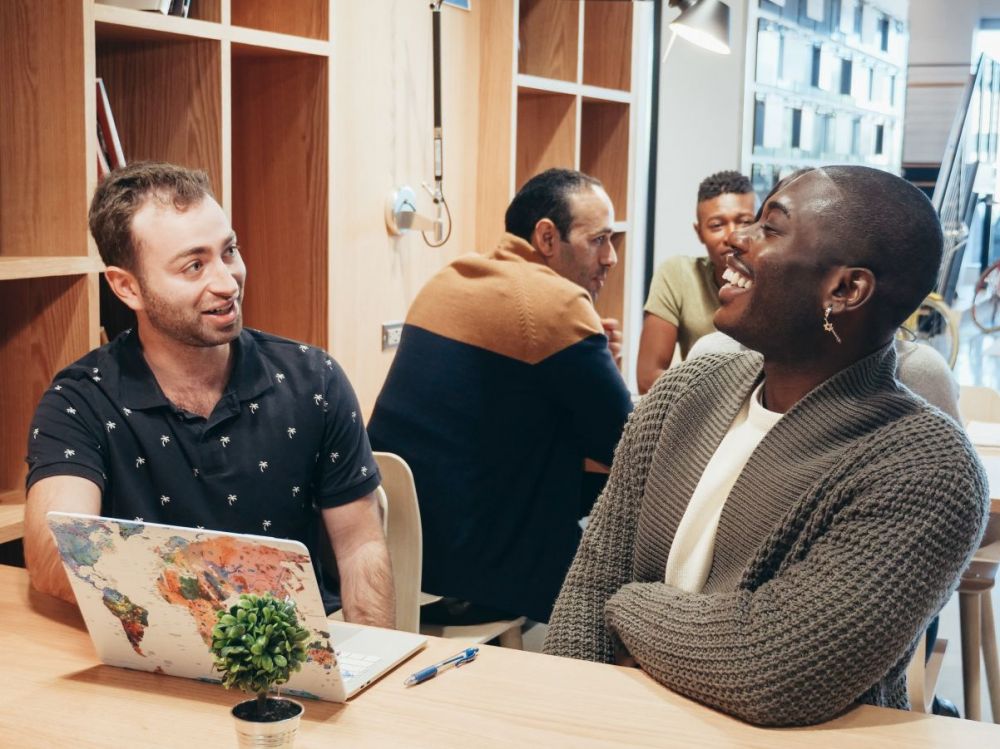With the spread of the Covid-19 pandemic and social distancing, many companies have had to resort to remote work. More than two years after the first confinement, remote work habits have disrupted traditional spaces. After sometimes knowing the home office is 100%, employees look to another organization. What are the changes in the workplace?
Workplaces are still essential
While some companies have completely abandoned having offices, these buildings remain essential to the majority of these companies. Because despite the development of many communication tools, the office remains the best place to create social connections. WhatsApp chat will never replace casual chat over coffee. These buildings also allow for a smoother flow of ideas between employees, especially during face-to-face meetings.
fight isolation It is also one of the challenges of remote work tomorrow. Because some employees find themselves overwhelmed with stress or experience a drop in motivation due to the absence of colleagues and social interactions.
However, this office must reinvent itself. Health security and the anticipation of a new pandemic will now guide the design of workplaces. Companies will have to imagine furniture that can be moved easily to increase the distance between employees or create smaller work groups. Attendance with fewer workers on site will also have to be reviewed at the same time.
Developments adapted to new needs
In addition to sanitary standards, company premises must evolve to adapt to the new needs of employees. Ago The hybrid rhythm between remote and face-to-face work It seems that it has become the norm, appropriate equipment is required. While most offices were previously organized in open spaces With a few enclosed offices and meeting rooms, work spaces will be more diverse. Businesses, for example, can equip themselves with “phone rooms” designed for meetings by phone, or even “meeting rooms” for video meetings, but also spaces that are more private and quieter, which leads to focus.
according to Third Climate Survey 2020-2021 From the European Investment Bank (EIB)*, the pandemic affirmed the environmental conscience of the population. So employees want a more respectful work environment with durable materials, good air circulation, thermal and acoustic comfort, and greener spaces.
And in times when employees are working remotely, employers will have to invest in high-performance digital tools in different areas:
- of communication, which remains the basis for the well-being of employees;
- for productivity
- To facilitate project management and follow-up of everyone’s tasks;
- For the convenience of work, with a smartphone and a high-performance computer.
Joint work as an alternative
Among the alternatives to the face-to-face duo and the home office, co-working appears to be in a good place. These co-working spaces already existed before the pandemic, but they’ve really taken off since remote working has been popularized.
They make it possible to break the isolation from professional activity alone at home and bring some welcome flexibility. In general, they provide services that contribute to the welfare of workers, such as secluded spaces for telephone communication, catering service, places of relaxation, pleasant premises, etc. There are many formulas. You can just settle in for a few hours in a place that looks like a coffee shop or rent a closed office on a monthly basis.
These places also allow employees who do not have a suitable home to work remotely to have a quiet place. Moreover, this kind of worker is that Some hotels offer to rent out their rooms day in and day out.
On the business side, this can also be a good way to save money. With some of its employees deserting offices, renting premises can seem superfluous and expensive. Financing shared office rentals appears to be cheaper and more flexible. A rapidly growing company, for example, can adapt its office space more easily than if it had to regularly search for larger spaces. It is the same for a company that has variable activity throughout the year with more or fewer employees.
*The survey was conducted on 30,700 people aged 15 and over, from 27 European countries, the United Kingdom, China and the United States, and was interviewed online by the BVA from 10-5-2020 to 2-11-2020.
(by HREF Editorial Board)

“Music guru. Incurable web practitioner. Thinker. Lifelong zombie junkie. Tv buff. Typical organizer. Evil beer scholar.”






More Stories
A large manufacturing project awaits space in the industrial zone
According to science, here are officially the two most beautiful first names in the world
Green space, 100% pedestrianized: DIX30 reinvents itself